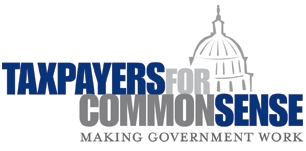Taxpayers for Common Sense and the National Wildlife Federation together sent a letter to House Committee on Natural Resources Water and Power Subcommittee Charwoman Napolitano, commenting on our opposition to H.R. 4225.
|
February 3, 2010 The Honorable Grace Napolitano Dear Chairwoman Napolitano: We are writing to submit these comments for the hearing on H.R. 4225, legislation “to authorize drought assistance adjustments to provide immediate funding for projects and activities that will help alleviate record unemployment and diminished agricultural production related to the drought in California.” Simply put, we believe this legislation could be enormously costly and open the door to ill-advised and environmentally destructive water projects and set a precedent that undercuts the fundamental tenets of local cost-sharing for infrastructure. We do not believe such waiving of basic requirements of non-federal responsibilities as the bill proposes is either a wise or appropriate means to address such purposes. Taxpayers for Common Sense and National Wildlife Federation strongly oppose H.R. 4225 and urge its defeat. While purportedly targeted to assisting areas affected by drought and high unemployment in California, the bill – as drafted – could be spent on projects anywhere. And while this could be resolved by simply tightening the language, it is a reminder that the appetite for free money does not stop at agricultural water supply projects in California. It is difficult to envision Congress passing legislation only benefiting California when other areas of the country are experiencing similar problems. The costs of this legislation could be enormous. Local cost-sharing to Bureau of Reclamation (and other agency) projects is key test of actual need and interest. Economic studies have shown that local interests temper their project goals when they recognize that they will have to pay a percentage of the project costs. In addition, cost-sharing allows each federal dollar to go further than when construction costs are entirely borne by the federal government. By legislating an end-run on cost-sharing, H.R. 4225 would undercut decades of cost-sharing agreements and pave the way for its complete unraveling. The relatively loose project eligibility criteria in H.R. 4225 could allow funding for projects that: (a) are not authorized by Congress; (b) are owned by private or other-non federal interests; (c) have not been subjected to National Environmental Policy Act; and (d) have not been subjected to a federal feasibility study. In fact, all that is required is that a project had received some federal funding at some time. There are hundreds of projects that meet that very low bar and without sufficient environmental review, some or many could be devastating to the environment. The legislation allows any appropriations provided under the American Recovery and Reinvestment Act of 2009 (stimulus bill) or appropriations through Fiscal Year 2012 to be used to fund the non-federal share of projects. There is no total authorized funding level for this program and the provision could cost taxpayers hundreds of millions to billions of dollars, especially since project sponsors that could afford to cost-share would still be eligible for a government handout. The Pay-As-You-Go impact of this legislation will likely be large. In addition, hard won experience tells us that programs such as this become very popular and seldom sunset as originally directed. They drag on for years or even become permanent. We recognize that with the economic challenges facing our nation, people are hurting across the country and the drought exacerbates the suffering. But by undermining decades of hard won cost-sharing principles, H.R. 4225 is neither fiscally nor environmentally responsible and would have enormous negative impacts on the budget and the environment long after the economy has rebounded and the drought abated. Again, Taxpayers for Common Sense and National Wildlife Federation strongly oppose H.R. 4225 and urge its defeat. Sincerely,
|


.bmp)










